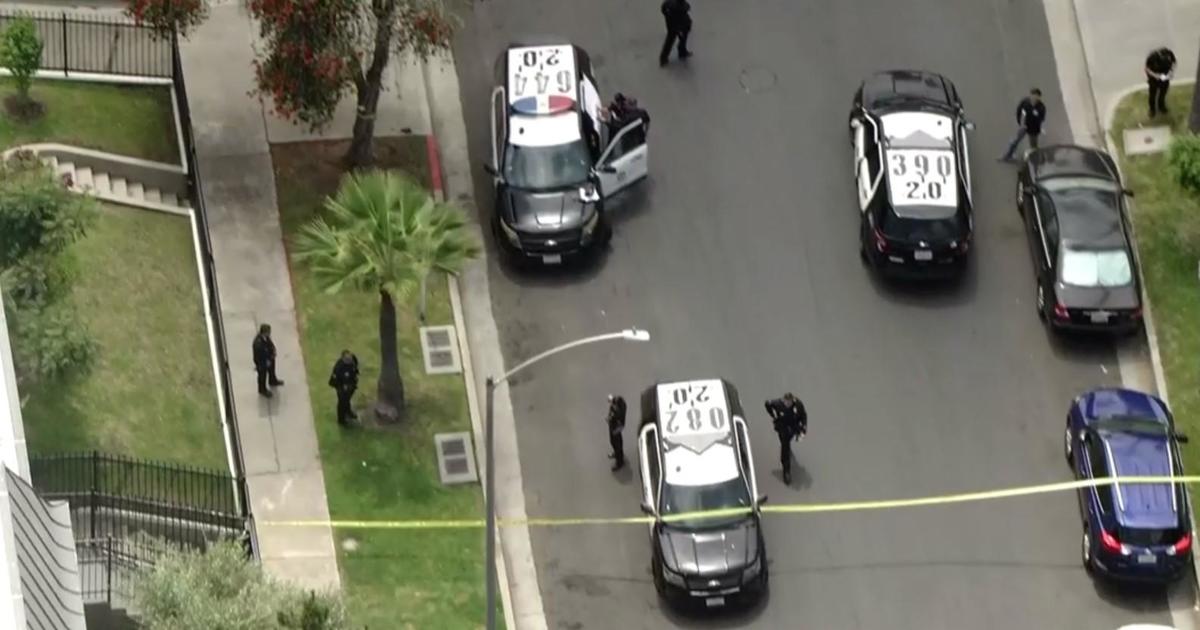Storage Customers Say Company Illegally Auctioned Off Their Belongings
LOS ANGELES (CBSLA.com) — Customers who say their possessions were auctioned off without their knowledge or consent are speaking out about the nightmare of losing a lifetime of belongings, in spite of what they say were attempts to repay what they owed.
When Francis Mello's husband died, she put her belongings into a storage unit at PODS.
"It was the ideal service because they offered storage and moving," said Mello.
Among the items in the storage unit were her late husband's lifelong book collection, numbering roughly 45,000 volumes. Mello said about six of the books were worth more than $1,000 each.
"This was my children's inheritance," she said.
A few months after her husband's passing, Mello was diagnosed with colon cancer and suffered a collapsed lung. She said she was trying to keep track of her life but got behind on her payments, and was talking to the company.
Three weeks after surgery, Mello said she went down to her storage unit to pay her outstanding balance but was told that they could not accept her money. According to Mello, she was given a number to call to speak to a person about her account.
She said the employee working at the warehouse told her he went and checked on her belongings.
"He was very convincing," she said. "He said 'your container is still there, we'll put a note up, we'll take care of you' and I thought oh, good, I have someone to talk to."
But after weeks of calling the number she had been given with no response, she mailed a cashier's check for the full amount owed, roughly $700. A month later the check was returned.
"They said it was gone, it was auctioned," said Mello.
Mello estimates the value of the contents to be more than $300,000.
After Yvain Reid's father died, his family put the contents of his parents home into a storage pod at a PODS facility in Anaheim. All together, the storage unit contained the contents of a four-bedroom home, estimated to be worth around $200,000.
Like Mello, Reid said the company refused his payment of just over $400 and auctioned off all of their belongings.
"I had no idea we were in auction status," said Reid. "So we didn't realize it until we faxed in our payment and they faxed it back saying it's too late, we've already sold your stuff."
"It was devastating," said Reid. On top of the pain of losing his father, he had lost all but one of his photos.
"He was a firefighter, so there were awards and photos," said Reid. "All gone."
Attorney Dale Washington has filed 15 cases against PODS. He said that none of the people in his cases were told when or where their items would be auctioned off so that they could buy back their own belongings. And in every case, the amount the customers owed was a fraction of what the contents were worth.
"The lose money, they lose property, and they lose photographs, war medals, children's report cards," said Washington. "Things they can't replace."
PODS denied an interview request, but the company sent a statement that reads in part:
"PODS makes multiple attempts to contact customers who have not paid to work out payment arrangements. However, despite PODS' efforts to work out payment arrangements, a small fraction of those accounts result in an auction of the stored property. Any auctions that PODS' conducts are conducted under the California Self Storage Act, which is designed to protect consumers."
Attorney Washington said PODS did not comply with the California Self Storage Act, which requires companies to send by certified mail an itemized bill and due date. The law requires that companies provide a name, address, and phone number of someone to contact regarding the notice, and include a notification to the customer that access may be denied and items sold if payment is not received by the due date.
The Self Storage Act also states that prior to a sale, anyone claiming the right to the goods may pay the amount necessary to save it from auction. And one of the most important provisions of the law calls for a "named alternate" to be identified, so that the company has another person to call if the account goes into default, before items are sold.
"I had really been fooled, which is embarrassing," said Mello. "I have not told my children yet that their dad's library is gone. I will do that someday, obviously I'll have to," she said.
Still, she said there is a lingering feeling that her possessions remain out there somewhere.
She said she still visits thrift stores and antique sales in hopes of finding pieces of her late husband's collection, and buying back some of her memories.



